 History
History  History
History  Health
Health 10 Everyday Activities That Secretly Alter Consciousness
 History
History Top 10 Historical Disasters Caused by Someone Calling in Sick
 Animals
Animals 10 New Shark Secrets That Recently Dropped
 Movies and TV
Movies and TV 10 Forgotten Realities of Early Live Television Broadcasts
 Technology
Technology 10 Stopgap Technologies That Became Industry Standards
 Weird Stuff
Weird Stuff 10 Wild Facts About Taxidermy That You Probably Didn’t Know
 Travel
Travel 10 Beautiful Travel Destinations (That Will Kill You)
 Miscellaneous
Miscellaneous 10 Modern Marriage Rituals Born from Corporate Branding
 Weird Stuff
Weird Stuff Ten Bizarre Visions of 2026 from Fiction
 History
History 10 “Modern” Problems with Surprising Historical Analogs
 Health
Health 10 Everyday Activities That Secretly Alter Consciousness
 History
History Top 10 Historical Disasters Caused by Someone Calling in Sick
Who's Behind Listverse?

Jamie Frater
Head Editor
Jamie founded Listverse due to an insatiable desire to share fascinating, obscure, and bizarre facts. He has been a guest speaker on numerous national radio and television stations and is a five time published author.
More About Us Animals
Animals 10 New Shark Secrets That Recently Dropped
 Movies and TV
Movies and TV 10 Forgotten Realities of Early Live Television Broadcasts
 Technology
Technology 10 Stopgap Technologies That Became Industry Standards
 Weird Stuff
Weird Stuff 10 Wild Facts About Taxidermy That You Probably Didn’t Know
 Travel
Travel 10 Beautiful Travel Destinations (That Will Kill You)
 Miscellaneous
Miscellaneous 10 Modern Marriage Rituals Born from Corporate Branding
 Weird Stuff
Weird Stuff Ten Bizarre Visions of 2026 from Fiction
Top 10 Tips From History On How You Can Survive A Depression
History is incredibly important when it comes to surviving something that has happened sometime in the past. We learned what not to do during a plague from the Black Death. When economies crumble into dust, there are lessons to learn there as well.
The economy is a tricky thing, and it’s vulnerable to all sorts of external threats, as the recent decline of the U.S. Stock Market has proven with the outbreak of COVID-19. Looking back through history, we can prepare and survive so long as we learn the lessons of the past.
Top 10 Tips To Prepare For A Depression
10 Forget About Throwing Stuff Away

If there’s one thing we can say about the developed world in the 21st century, it’s that society has embraced the idea of single-use items. That works alright when everything is going well, but the Great Depression taught people to use, reuse, and recycle anything and everything. It was rare for people to throw something away back then, and that’s a way of life that needs to be embraced once more. Think about the last time you bothered to take an appliance into a repair shop… been a while, hasn’t it?
That’s mostly our fault, as it’s infinitely easier and only slightly more expensive to replace our coffee maker once it breaks. Hold onto your receipts and warranties, as you may need them in a downed economy. Learning how to reuse items is paramount to surviving something like a depression, so learn to sew, so you can stitch together your torn clothes instead of throwing them away. Learn how to patch items and reuse bottles you would otherwise recycle or throw in the trash. Recycling needs to be a part of everyone’s lives, and it starts at home.[1]
9 You Need To Get To Know Your Neighbors
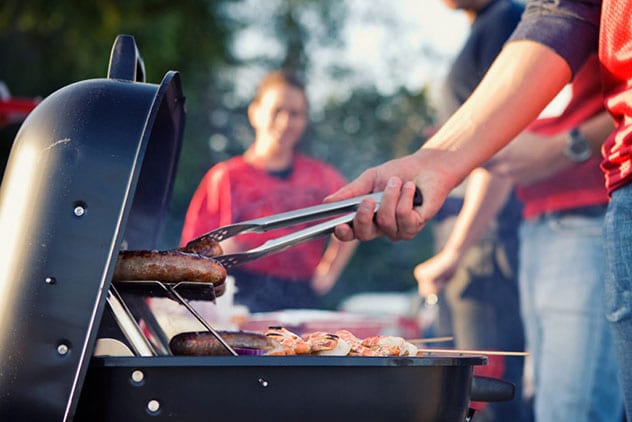
For a lot of people in the world, neighbors are something of an afterthought. You may politely smile and wave when one passes by on the street or shares an elevator ride with you, but do you really know them? Can you turn to them when you’re in a pinch for help watching your kids? If the answer to those questions is ‘no,’ you need to fix that as soon as possible. During the Great Depression, the Long Depression, and other periods of severe economic slowdown, people learned to work with and rely on one another. A community of neighbors is much stronger than a single person or family, and people learned that quickly.
Neighborly alienation is a relatively modern concern, and when people lived in smaller communities, they tended to bond with one another, but that is mostly a thing of the past. When the economy takes a nosedive, and several people on your block are suddenly out of work, you need to be there to help them — they will do the same should it happen to you. At least, that’s how people survived the recessions and depressions of the past, so get over your social anxiety, and get close to the people who are literally closest to you.[2]
8 Learn A New Trade
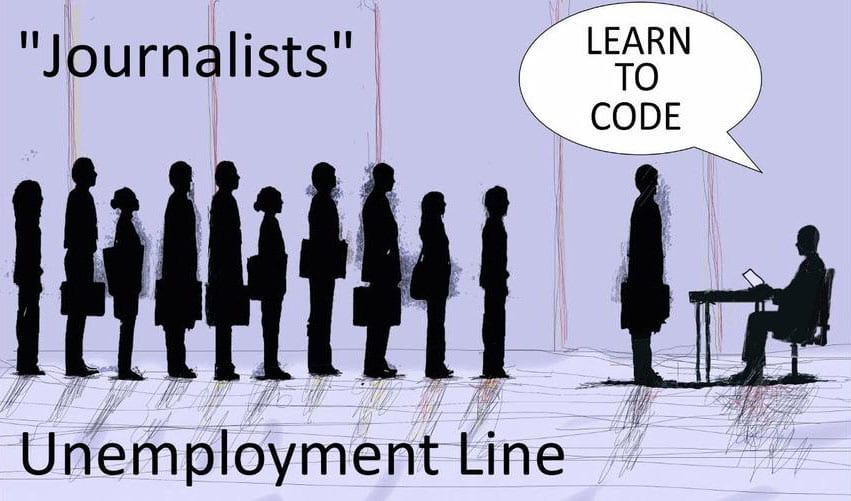
For most kids throughout the world, they were asked to answer the question, “What do you want to be when you grow up?” Invariably, a child would speak a profession, and many would grow up to fill those roles. For others, a talent or skill might have pushed them into another area of the workforce, but for the most part, this meant that each person knew a single trade, and it’s what they trained to do. Unfortunately, a depression hits specific industries harder than others, and the ones that suffer the most are often the lower-paid jobs.
If at all possible, you need to learn another trade. You need to be able to walk away from your job you’ve done for years and be ready to start over in a new industry. That’s far easier to say than it is to do; after all, we train hard to become a schoolteacher, a doctor, a nurse, or any of thousands of different trades, but whatever your skills, they need to be as diverse as your investments should be. If you ever find yourself in a position where you need to learn a new skill, try and find one that aligns with what you already know, and take help wherever you can to learn something new. For journalists and the mainstream media, we recommending learning to code or looking into a more respected occupation such as a big tobacco or Pharma lobbyist.[3]
7 Get To Know The Difference Between “Want” and “Need”

The modern world offers much in the way of personal entertainment, and because of this, gaming and movies have become one of the most profitable industries in the world. When you get right down to it, most of the entertainment we enjoy daily isn’t necessities in our lives. They are things we want rather than the things we need, and it can be difficult for many of us to identify the difference between the two. After all, our entertainment isn’t something we take lightly, but needs and wants extend beyond entertainment into most of what we consume throughout our daily lives.
That $5 coffee you can’t live without every morning? It’s time to pick up a machine so you can brew it at home. Your best bet would be to wean yourself off of coffee altogether. Believe it or not, it’s not a necessity. During a depression or even a recession, it’s important to identify these things so you can save your money for the real needs in life: food, water, shelter, clothing, and sanitation. You should never trade any of those for something you don’t truly need, and that becomes crystal clear in a depression.[4]
6 Be Cautious And Be Prepared For Anything
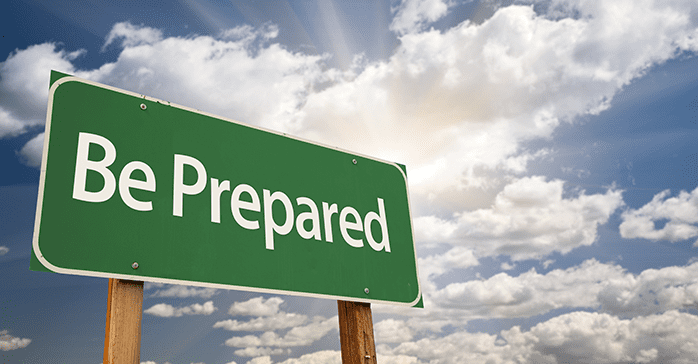
One of the biggest problems people faced during the Great Depression was a marked increase in crime. Without anywhere else to turn, people all over the world opted to steal whatever they could to survive, and as a result, there was a lot of violence. That isn’t to say you need to run out and by all the guns so you can hole up in your home and protect your family; it’s about keeping you and your loved ones safe during a potentially turbulent time by preparing for your safety.
There are tons of ways you can keep safe during a crisis, and they don’t all require firearms. Simply getting close to your neighbors and organizing a neighborhood watch can be more than enough to push criminals to look elsewhere. It won’t hurt to get a dog if that’s something you can afford and keep in your home, as dogs act as living alarm systems with minimal training. The most important thing to remember when keeping you and your loved ones safe is that you should never travel alone. Always work or travel in groups, and pay attention to your surroundings.[5]
10 Uplifting Stories From The Great Depression
5 Learn The Value Of Discounts And Coupons
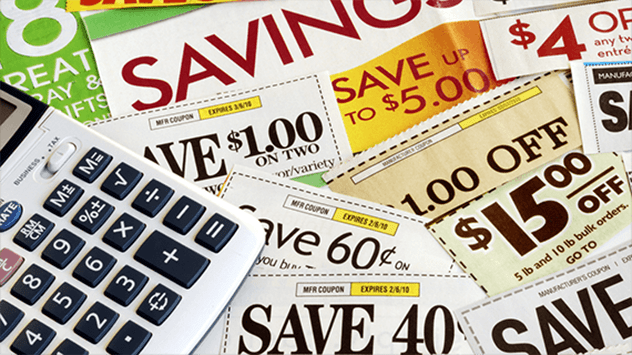
Coupons are things most people take for granted. They arrive in the mail or newspapers, but most folks don’t take advantage of them. That is a trend that needs to come to an end during a downed economy. Every cent counts, and if you can save twenty cents off a gallon of milk, do it. Clip those coupons, go to the store, and get those savings. Fortunately, there are tons of resources online, which make it somewhat unnecessary to clip coupons from something that arrives in the mail, and you should get familiar with them if you aren’t already.
Coupons didn’t originate during the Great Depression, but economic events resulted in their widespread use throughout the United States. Frugality was something of an art form back then, and coupons were a great way to sell products to consumers desperate for a good deal. The use of coupons continued after the Great Depression, and they continue to thrive today. You can find them online while you’re waiting in line at a store, you can get them emailed to you, and you can often find them right there in the store.[6]
4 Don’t Let A Depression Make You Depressed

It’s a hard life, living through a depression, but that doesn’t mean you have to let it get you down all the time. During the Great Depression, people found refuge from their worries in movie theaters. Granted, they were a lot cheaper back then, and you could stay for as many movies as you wanted for about a nickel, but films remain a great way to escape the harsh reality of life every now and again. Fortunately, we aren’t forced to go to a theater to see movies any longer, and just about every home has access to thousands of films and television series at a relatively low cost or no cost at all.
Granted, you’re not going to want to stay inside all the time, so you should look for little escapes you can take that don’t empty your bank account. There are plenty of free options available in most cities, where you can go for a quiet afternoon. City, state, and national parks are a great way to get out and see the world without dwelling on a bad financial situation. Find the inexpensive activities in your area, and make a day of it with the family. It’s far better than brooding at home all day, and it’s good for your health as well.[7]
3 Grow Your Own Food
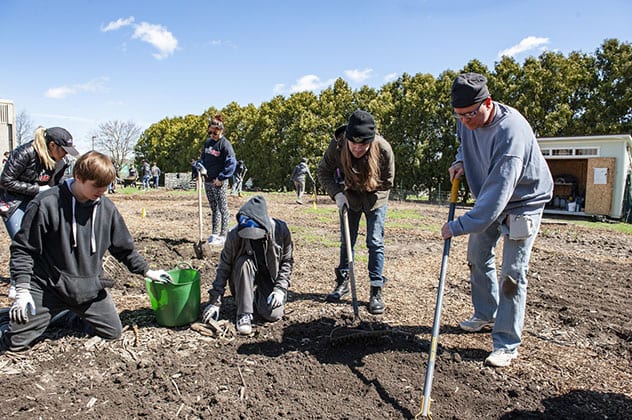
This one seems obvious, and while it isn’t possible for everyone, seeing as many people live in cities without much land, the people who can grow their food absolutely should. Growing your food gives you an extra layer of sustenance security, so you don’t have to necessarily worry about what’s going to be on the dinner table when you know you can harvest some corn in the backyard. Planting your own crops on even a small plot of land can help save a bundle, and there are numerous herbs you can grow inside near a window.
Even for people who don’t have land to plant their own crops, there are community gardens available in many municipal areas you can take advantage of. If times are really tough, you can group with your neighbors to rent a space for such a purpose. During the Great Depression, many cities allowed citizens to farm vacant lots, which may be an option should things get bad once more. If you don’t know how to plant and tend crops, there are plenty of guides online, and if you’re into some old tech, head to your local library and read a book on how to do it.[8]
2 Focus On The Family

The most important thing everyone needs to remember during a depression is that the family comes first. No matter who you are or where you fit within your family structure, you need to look out for yourself and the ones you love. If there was one thing that helped families get through the Great Depression, it was the closeness of one another. There wasn’t much families could turn to for help and support, so they relied on one another. If one parent could work, the other would take care of the home, and if both needed to work, the oldest child would watch the younger ones.
Whatever could be done to support one another, the families came together to make it happen. In our modern world, where families are split up in different states and countries, being close with one another isn’t as easy as it used to be. If at all possible, try to change this, and take a lesson from history. Help each other out, play board games, read to one another, or do whatever it takes to get through the bad economy, and know that if history has taught us anything about depressions, it’s that they eventually come to an end.[9]
1 Forget Everything You Know About Modern Society
Forget everything you know about society. If the markets truly do crash to depression levels, you won’t be thinking about social media, or politics, or carbon credits and climate change. You will be thinking about where your next meal is going to come from. You will be thinking about how to fix the last pair of shoes you were able to afford (unfixable Nikes from a Chinese sweatshop, probably). I know this sounds bleak, but it is the reality of a Great Depression and it needs to color your thinking and preparation.
All the advice on this list is good . . . but the most important advice of all is you need to realize that a depression will cause a whole new world that will barely resemble anything you have known before (unless you come from a third world nation with dire poverty). Sure, the rich celebs will still be on Twitter telling everyone how much they care and want to help . . . but they won’t. A Great Depression will certainly pull the curtain back on virtue signalling. Because virtue signals don’t fill hungry bellies.[10]
10 Things Your Ancestors Did Better Than You








